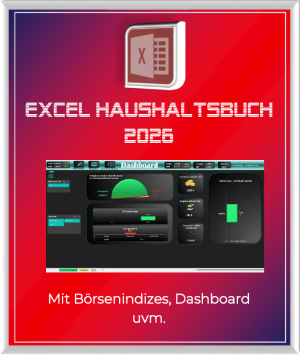Meta enters the world of AI chatbots with LLaMA
Like many other large tech companies, Meta is working on developing its own machine learning model that can be used for various applications. At the end of February, LlaMA was presented, a model that is based on 65 billion parameters and makes decisions. Although the model was only made available to selected test groups, it is already being shared on the internet via torrent and there is a Github repository with installation guides for various operating systems.
The first tests by the community show that LlaMA works on the same level as Text-davinci, which in turn is based on OpenAI’s GPT-3 model. So, Metas Software can generate relatively accurate pieces of text based on user input.

Meta enters the world of AI chatbots with LLaMA
Like many other large tech companies, Meta is working on developing its own machine learning model that can be used for various applications. At the end of February, LlaMA was presented, a model that is based on 65 billion parameters and makes decisions. Although the model was only made available to selected test groups, it is already being shared on the internet via torrent and there is a Github repository with installation guides for various operating systems.
The first tests by the community show that LlaMA works on the same level as Text-davinci, which in turn is based on OpenAI’s GPT-3 model. So, Metas Software can generate relatively accurate pieces of text based on user input.

Meta focuses on artificial intelligence
Meta focuses on artificial intelligence
At Meta, the current focus is on artificial intelligence and the development of a chatbot, while the Metaverse has taken a back seat. Mark Zuckerberg has now announced that internal teams are being restructured to work more efficiently. A top-level group will be created at Meta to focus on Generative AI to make faster progress in this area. People from different departments who already have experience with AI should be brought together to integrate this technology into the different products and create great experiences.
Initially, the focus will be on the development of creative tools, but in the long term, AI models will also be developed that can help in a variety of ways, for example in texts for WhatsApp and Messenger, images and filters, and videos for Instagram. However, there is still a lot of work to be done before these forward-looking experiences are available to users. Meta had made similar attempts in the past but failed. After the last focus was on the Metaverse, the company is now apparently returning to artificial intelligence.
At Meta, the current focus is on artificial intelligence and the development of a chatbot, while the Metaverse has taken a back seat. Mark Zuckerberg has now announced that internal teams are being restructured to work more efficiently. A top-level group will be created at Meta to focus on Generative AI to make faster progress in this area. People from different departments who already have experience with AI should be brought together to integrate this technology into the different products and create great experiences.
Initially, the focus will be on the development of creative tools, but in the long term, AI models will also be developed that can help in a variety of ways, for example in texts for WhatsApp and Messenger, images and filters, and videos for Instagram. However, there is still a lot of work to be done before these forward-looking experiences are available to users. Meta had made similar attempts in the past but failed. After the last focus was on the Metaverse, the company is now apparently returning to artificial intelligence.
Meta’s bulky abbreviation for AI language model “LLaMA”
Meta’s bulky abbreviation for AI language model “LLaMA”
Meta recently presented LLaMA (Large Language Model Meta AI), a language model intended to serve as the basis for its own chatbot. It is more powerful than OpenAI’s GPT-3 and Google’s PaLM in terms of the number of parameters used during training. LLaMA comes in four versions with different sets of parameters, although developers say even the smallest model can provide better answers than the competition. However, LLaMA is currently only available to researchers on a waitlist. The release of a chatbot for the public seems to be a long way off.
A few years ago, Meta, then known as Facebook, tried to integrate chatbots into its networks for various functions. The plan was that you could, for example, buy cinema tickets directly in Messenger by asking the chatbot to do so by entering text, which then automatically books and pays. Unfortunately, this did not work and the function was never implemented. Although there are shopping options across the various platforms, customers still have to manually navigate through the Services to complete a purchase. Meta’s previous chatbot, the BlenderBot, which is open at least for testing purposes, shouldn’t repeat previous problems of AI-based bots, such as bias and inappropriate responses. However, this has only had limited success so far.
It remains unclear whether the merger of employees will also result in job cuts. Zuckerberg recently said last year’s job cuts were just the beginning. In this year of efficiency, middle management is set to be trimmed and layoffs are expected to occur in nearly every area. Meta needs to get back on its feet financially and keep investors engaged. In addition to misjudgments of the business in the booming Corona times, inflation and collapsing advertising revenues are causing the company to plummet.
Meta recently presented LLaMA (Large Language Model Meta AI), a language model intended to serve as the basis for its own chatbot. It is more powerful than OpenAI’s GPT-3 and Google’s PaLM in terms of the number of parameters used during training. LLaMA comes in four versions with different sets of parameters, although developers say even the smallest model can provide better answers than the competition. However, LLaMA is currently only available to researchers on a waitlist. The release of a chatbot for the public seems to be a long way off.
A few years ago, Meta, then known as Facebook, tried to integrate chatbots into its networks for various functions. The plan was that you could, for example, buy cinema tickets directly in Messenger by asking the chatbot to do so by entering text, which then automatically books and pays. Unfortunately, this did not work and the function was never implemented. Although there are shopping options across the various platforms, customers still have to manually navigate through the Services to complete a purchase. Meta’s previous chatbot, the BlenderBot, which is open at least for testing purposes, shouldn’t repeat previous problems of AI-based bots, such as bias and inappropriate responses. However, this has only had limited success so far.
It remains unclear whether the merger of employees will also result in job cuts. Zuckerberg recently said last year’s job cuts were just the beginning. In this year of efficiency, middle management is set to be trimmed and layoffs are expected to occur in nearly every area. Meta needs to get back on its feet financially and keep investors engaged. In addition to misjudgments of the business in the booming Corona times, inflation and collapsing advertising revenues are causing the company to plummet.
Popular Posts:
So sieht das wirklich perfekte Homeoffice-Setup für 2026 aus
Ihr Homeoffice ist veraltet? Steigern Sie 2026 Produktivität & Gesundheit. Unser Guide zeigt das perfekte Setup: von ergonomischen Stühlen und 4K-Webcams bis zu Mesh-WLAN und Kabelmanagement. So investieren Sie in Ihre Karriere.
Internet, Telefon & TV: Die besten Komplettpakete
Internet, TV & Telefon aus einer Hand? Wir vergleichen die Komplettpakete von Telekom, Vodafone, O2 & 1&1. Wer punktet bei Speed, TV-Komfort (MagentaTV vs. GigaTV) und Preis? So finden Sie das beste Triple-Play-Angebot für Ihre Adresse.
5 Anzeichen, dass dein Chef dich im Homeoffice digital überwacht
Nur weil du im Homeoffice bist, heißt das nicht, dass dir niemand zusieht. "Bossware" ist auf dem Vormarsch. Wir zeigen 5 subtile Anzeichen für digitale Überwachung – von "Teams-Status"-Kult bis zu verdächtigen IT-Tools. So erkennst du die Warnsignale und schützt deine Karriere.
Schluss mit dem Tool-Chaos: 5 Apps, die Euer Office wirklich produktiver machen
Schluss mit digitaler Reibung: Diese 5 Apps machen Ihr Büro wirklich produktiver. Entdecken Sie, wie Asana, Loom, Notion, Zapier und Slack die Effizienz steigern, Meetings reduzieren und Ihr Team smarter vernetzen – wenn man sie richtig einsetzt.
AI in everyday office life: Your new invisible colleague
AI won't replace you – but those who use it will have a competitive edge. Make AI your co-pilot in the office! We'll show you four concrete hacks for faster emails, better meeting notes, and solved Excel problems. Get started today, no IT degree required.
Fünf vor Zwölf: Wie Sie erkennen, dass Sie kurz vor dem Burnout stehen
Erschöpfung ist normal, doch wenn das Wochenende keine Erholung mehr bringt und Zynismus die Motivation ersetzt, stehen Sie kurz vor dem Burnout. Erfahren Sie, welche 7 Warnsignale Sie niemals ignorieren dürfen und warum es jetzt lebenswichtig ist, die Notbremse zu ziehen
Popular Posts:
So sieht das wirklich perfekte Homeoffice-Setup für 2026 aus
Ihr Homeoffice ist veraltet? Steigern Sie 2026 Produktivität & Gesundheit. Unser Guide zeigt das perfekte Setup: von ergonomischen Stühlen und 4K-Webcams bis zu Mesh-WLAN und Kabelmanagement. So investieren Sie in Ihre Karriere.
Internet, Telefon & TV: Die besten Komplettpakete
Internet, TV & Telefon aus einer Hand? Wir vergleichen die Komplettpakete von Telekom, Vodafone, O2 & 1&1. Wer punktet bei Speed, TV-Komfort (MagentaTV vs. GigaTV) und Preis? So finden Sie das beste Triple-Play-Angebot für Ihre Adresse.
5 Anzeichen, dass dein Chef dich im Homeoffice digital überwacht
Nur weil du im Homeoffice bist, heißt das nicht, dass dir niemand zusieht. "Bossware" ist auf dem Vormarsch. Wir zeigen 5 subtile Anzeichen für digitale Überwachung – von "Teams-Status"-Kult bis zu verdächtigen IT-Tools. So erkennst du die Warnsignale und schützt deine Karriere.
Schluss mit dem Tool-Chaos: 5 Apps, die Euer Office wirklich produktiver machen
Schluss mit digitaler Reibung: Diese 5 Apps machen Ihr Büro wirklich produktiver. Entdecken Sie, wie Asana, Loom, Notion, Zapier und Slack die Effizienz steigern, Meetings reduzieren und Ihr Team smarter vernetzen – wenn man sie richtig einsetzt.
AI in everyday office life: Your new invisible colleague
AI won't replace you – but those who use it will have a competitive edge. Make AI your co-pilot in the office! We'll show you four concrete hacks for faster emails, better meeting notes, and solved Excel problems. Get started today, no IT degree required.
Fünf vor Zwölf: Wie Sie erkennen, dass Sie kurz vor dem Burnout stehen
Erschöpfung ist normal, doch wenn das Wochenende keine Erholung mehr bringt und Zynismus die Motivation ersetzt, stehen Sie kurz vor dem Burnout. Erfahren Sie, welche 7 Warnsignale Sie niemals ignorieren dürfen und warum es jetzt lebenswichtig ist, die Notbremse zu ziehen

































